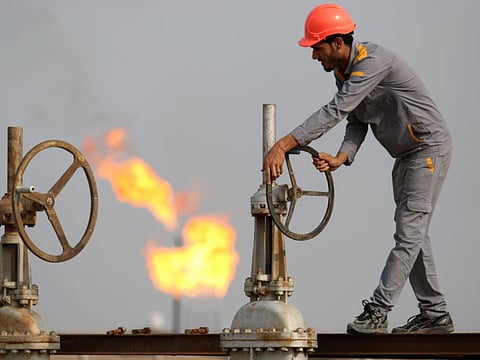Oil and the state system against extremism
Arab Gulf monarchies have bolstered the view that investments in human resources can catapult traditional societies into modernising entities

In early October 2015, T. Boone Pickens, the founder and chairman of the hedge fund BP Capital Management and former CEO of Mesa Petroleum, acknowledged that his prediction of oil price reaching $70 (Dh257.46) per barrel by the end of this year didn’t come true. His explanation for the flop cited decisions by Saudi Arabia, Qatar, Kuwait and the UAE — four key members of Organisation of Petroleum Exporting Countries — to increase their market shares by bringing new production online. In a moment of sheer hubris, Pickens opined that for Arab Gulf leaders, the top priority was not to “make money for stockholders”, without realising that there would be no point in making money if one was lost in space. Still, the seasoned oilman concluded that oil producers “have a long-term strategy, [whereas] America doesn’t”.
He further lamented that Russia was now a regional actor after it moved to protect the calamitous Syrian regime, oblivious to its real interests with Arab Gulf oil producers that, once again, saw the type of permutations that mixed apples, oranges and assorted other fruit in the global confusion basket.
In recent years, conspiracy analysts expressed bewilderment that Russia and Saudi Arabia, each of which produced about 10 million barrels per day, were not in an alliance to dictate terms to oil-consuming economies, as if the fate of nation-states was a mere game of chess. A putative Moscow-Riyadh energy axis, they believed, hovered around the notion that if the two leading producers were to cut back production by an estimated ten per cent, for example, the price of oil would go up to a $100 a barrel, which would mean additional income for both, and non-negotiable dilemmas for consuming nation-states. In the event, those who advanced such rationales skirted fundamentals, unaware of various reasons why Riyadh and Moscow were so far apart.
To begin with, and although the Soviet Union, Russia’s predecessor, was the first country to extend diplomatic relations to the Kingdom of Saudi Arabia in 1932, one of the possible answers for the cold war between the two states was Moscow’s cherished ideological preferences. Simply stated, successive Russian governments backed revolution, anti-monarchical systems and cherished anti-Capitalism, until they too discovered the merits of wealth. They also supported Riyadh’s opponents throughout the region for decades, none of which went unnoticed, even if recent changes hinted at fundamental transformations.
Russia changed after 1989-1990, of course, but a leopard seldom sheds its spots. Nevertheless, while a far more pragmatic Russia emerged, Moscow struggled with alliances and, truth be told, was not particularly good at it. Lest we forget, it literally lost an ideal association with East Germany, where Vladimir Putin was a senior spy. It would not be unfair to state that those who found solace in Russian arms were less than a handful, along with those who fantasised about anti-western goals.
Riyadh and its Arab Gulf partners, on the other hand, allied themselves with western states, though what stymied ties was the question of Palestine. For more than seven decades, Arabs and westerners struggled with this core issue, while neither side budged. To be sure, western powers led by Washington, have neglected Palestine, though Arab countries led by Riyadh constantly remind their interlocutors of the need for justice. Palestine is still in limbo, although die-hard Zionists understand that there will be no peace until the formal creation of an independent state, no matter how long the process takes. The irony, of course, is the Palestinian quest to join the nation-state system instead of being swallowed up by extremists.
No matter how unpalatable this notion may be for some, it is also fair to state that religious extremism grew in the Arab and Muslim worlds because of this fundamental neglect, even if part of the blame must be squarely placed on those who tolerate corrupt dictators that hijacked the cause. Be that as it may, in 2015, extremists targeted Arab republics and recruited thousands to die in the service of the so-called “caliphate” in Syria and Iraq, precisely because they understood what were the inherent political and economic weaknesses in their societies. There were exceptions, which deserved attention.
Tunisia, for one, which stood as the ideal alternative that illustrated how democratisation and Islam were compatible. The Arab Gulf monarchies too bolster that view, where investments in human resources catapulted traditional societies into modernising entities. Others might follow suit in the years to come after the dust settles in Libya, Egypt, Yemen, Iraq, Syria and Lebanon.
It was thus critical to note that responsive Arab rulers, who confronted the ire of anxious populations after 2011, in order to protect themselves and their populations from religious extremism, were the only ones who succeeded. In fact, the best counter-arguments to extremists remains those stable countries that have opted for gradual reforms and democratisation. Not everything is about making money for stockholders.
Dr Joseph A. Kechichian is the author of the forthcoming From Alliance To Union: Challenges Facing Gulf Cooperation Council States In The Twenty-First Century.



